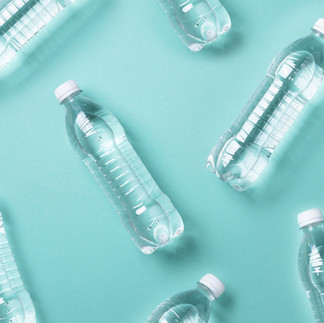Dehydration and PD
- PESGSC Board
- Aug 1, 2023
- 3 min read
Dehydration is a very real risk for aging adults. As people age, their sense of thirst is diminished, and they may not realize their body needs fluids. This sense continues to diminish as you age so that by the age of 80, your ability to realize you need fluids has diminished drastically.

Older adults do not retain water in their blood vessels to the extent that a younger
person does. Additionally, some medical conditions and their treatments may
contribute to diminished water in the blood stream. Urinary incontinence also may
factor into dehydration as many who are incontinent will forgo liquids as a way to
avoid accidents.
The consequences of dehydration are extremely serious. Unchecked, dehydration
can cause confusion, weakness, even a drop in blood pressure that could lead to
dizziness.
The consequences of dehydration in PD patients are even more serious than in healthy individuals. Water deficiency can manifest as worsening disease, with increasing stiffness and slowness. It can also result in low blood pressure, appearing as weakness and dizziness, especially when standing. With PD-related balance issues, dizziness compounds the risk of falling.
Severe dehydration can even lead to hypovolemic shock – a condition where your blood pressure gets so low the heart has trouble pumping sufficient blood throughout the body.
8 Signs of Dehydration You Shouldn’t Ignore
Adapted from Michelle Crouch for AARP. Full article can be found here: http://bit.ly/aarp-dehydration
When do you know if you are dehydrated? Watch for:
Thirst – if you are thirsty, you are already a bit dehydrated. Aim for at least 48 ounces of fluid daily, and more if you are active. Fluids such as water, juices, sports drinks, flavored waters and non-caffeinated sodas. Foods high in water also help.
Color of urine – normally, urine should be the color of tap water. If your urine is dark yellow to brown in color and/or has a strong odor, you are dehydrated.
3. Dizziness or fainting – this most likely occurs when you sit up after lying down or stand up from sitting. This is particularly dangerous for people with Parkinson’s that may experience this from orthostatic hypotension.
4. Muscle cramps or weakness – these are caused by an electrolyte imbalance and reduced blood flow to the muscles.
5. Constipation or less frequent urination – these conditions can be caused by dehydration as water in the blood helps to flush out toxins and wastes. Constipation is already a problem for many with Parkinson’s and dehydration can exacerbate the condition.
6. Dry skin or lack of skin elasticity – to check for adequate hydration you can gently pinch the arm skin. If it readily bounces back, you are sufficiently hydrated.
7. Dry mouth – although caused by some medications, your mouth can become dry due to dehydration. Dehydration will limit the amount of saliva produced. Severe dehydration may result in sores in the mouth.
8. Fatigue, headache, or confusion – may result from low blood flow.
If you or a loved one is suffering from any of these, drink some water and see if there is improvement. If not, you may want to consult a physician.
How to combat dehydration
The first step in prevention of dehydration is a conscious resolve to drink adequately. A voluntary effort is needed since the “natural desire to drink” is diminished.
Water intake can be increased by including water (1-2 glasses) at all meals and also at medication times. Adding a natural flavor to the water based upon preference makes the water more tasty and easier to drink.
Incorporating healthy drinks, e.g.: milk, natural fruit/vegetable juices, smoothies and water-rich foods (juicy fruits/vegetables, soups and stews) to meals adds to our daily water intake.
Dehydration tips from PESGSC members:
-- Many refillable water bottles come in 32oz size, and have markers at every 8 ounces. Use one of these large bottles to track how much water you are drinking each day.
-- If you are not motivated by a refillable water bottle, buy a case of water from a bulk store like Costco or BJ's Wholesale Club. Leave 3-5 bottles out around your house and make sure you drink all of them during the day!







Comments